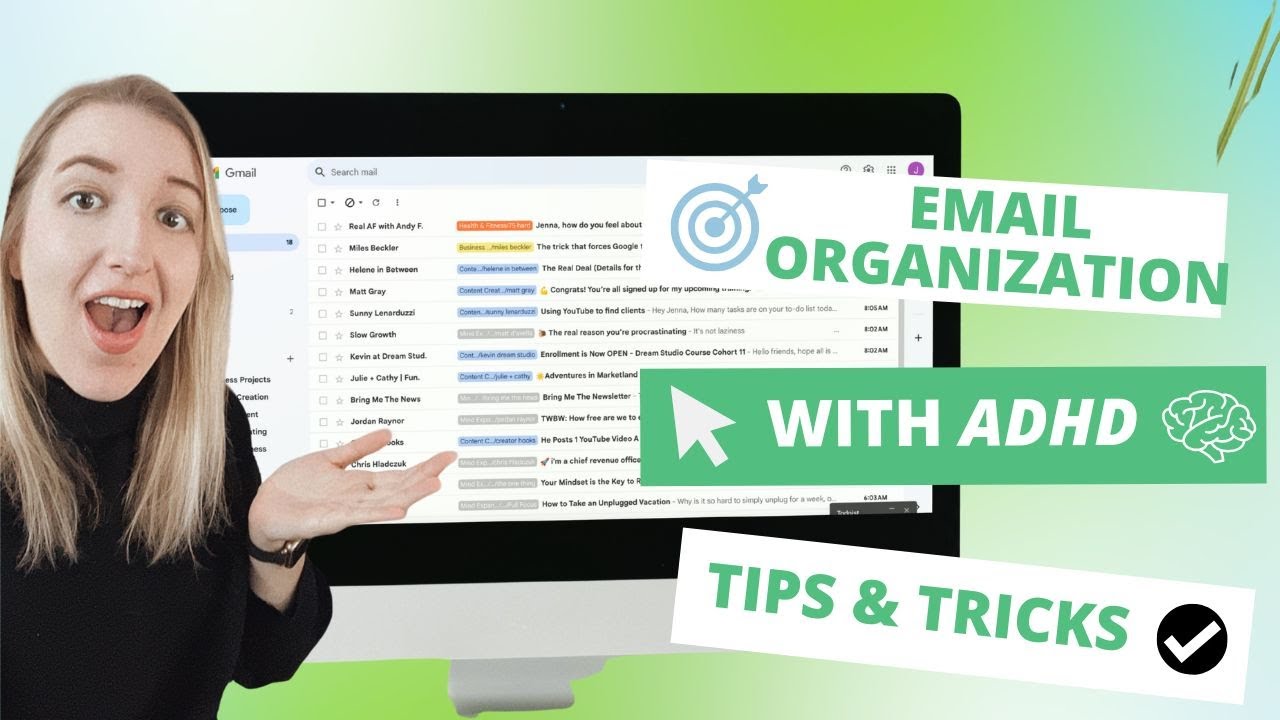Digital Destruction Strategies: Organizing Your Devices and Files

Understanding the Digital Landscape
In our increasingly connected world, the volume of data generated daily can feel overwhelming. Each day, individuals in the United States rely on an array of devices, including smartphones, tablets, and computers, to communicate, work, and store information. As a result, they amass a staggering amount of files, from photos to documents, leading to what experts refer to as data overload.
The phenomenon of data overload presents numerous challenges. For example, a recent survey indicated that over 80% of Americans own a smartphone and, on average, use three different devices each day. This multi-device lifestyle contributes to a chaotic digital environment where documents are scattered across multiple platforms. The inability to efficiently locate key files can result in frustrating delays, negatively impacting both personal and professional productivity.
The Importance of Data Organization
Moreover, a disorganized digital space poses significant security risks. With sensitive data often tangled in a mess of other files, it becomes easier for cybercriminals to exploit vulnerabilities. For instance, improperly labeled or stored files may lead to accidental data sharing or exposure, thereby increasing the risk of identity theft. Without a systematic approach to data organization, individuals unearth security pitfalls that could have been easily prevented through basic management practices.
Additionally, consider the lost time associated with disarray. Studies suggest that employees spend an average of 30% of their workweek searching for information. This inefficiency can lead to missed deadlines and increased stress, ultimately hampering both individual and team performance. The compounding frustration exacerbates the chaos, making the need for effective organization even more crucial.
To mitigate these risks, adopting comprehensive Digital Destruction Strategies can vastly improve your online organization. This means implementing methods aimed at maintaining an orderly digital life. Key strategies include:

- Decluttering: Regularly assess and remove unnecessary files and applications from your devices. For example, consider setting a monthly calendar reminder to delete files or apps no longer in use.
- Organizing: Establish a logical filing system across all devices. Utilize folders with clear names and consistent hierarchies so that anyone (including yourself) can quickly find relevant information.
- Backing Up: Create a habit of regular backups. Utilize cloud services like Google Drive or physical external hard drives to protect critical documents and ensure they are retrievable in case of device failure.
By exploring these techniques, you can navigate the digital world with greater ease, eliminating chaos and embracing a more efficient online existence. Transform your digital clutter into a well-oiled machine—one where information flows seamlessly, security risks are minimized, and productivity is maximized.
EXPLORE MORE: Click here to discover decluttering secrets
Implementing Effective Decluttering Techniques
When it comes to tackling the daunting task of organizing your digital life, decluttering is often the most transformative first step. The process requires more than just deleting a few excess files; it involves a strategic approach to ensure your devices and files remain manageable over time. According to a recent study, Americans waste up to 48 hours a year searching for lost or misplaced files on their devices. Addressing this disarray can lead to significant improvements in productivity, making it crucial for both personal and professional success.
The first aspect of decluttering is to regularly assess your digital assets. Schedule periodic sessions for file reviews—weekly, monthly, or quarterly, depending on your usage. Consider using a simple checklist to guide this process:
- Review your downloads: Frequently check and clear your downloads folder, where files often accumulate and are rarely revisited.
- Clean up your email: Unsubscribe from irrelevant newsletters and delete old correspondence that no longer serves a purpose.
- Organize your photos: Create albums based on events or themes and eliminate duplicates or unwanted images to free up space.
- Assess application usage: Identify applications that you haven’t used in the last six months and consider uninstalling them to improve device performance.
While decluttering is crucial, how you approach organizing your files is equally important. Establishing a logical filing system can save time and energy. Adopt a systematic naming convention for files and folders that is both meaningful and easy to remember. Consistency is key; for instance, if you decide to date files in a certain format (MM-DD-YYYY), stick with that format across all devices. This will assist not only you but also others who may need to access your files in the future.
In addition to organization, implementing a solid backup strategy is essential for safeguarding your data. Creating regular backups provides a safety net against data loss due to hardware failure, accidental deletions, or malware attacks. Whether it is through a cloud service such as Dropbox or Google Drive, or by using external hard drives, having backups ensures that your critical documents and cherished memories are always preserved.
As you navigate through these Digital Destruction Strategies, remember that the goal is to foster a digital ecosystem that is as functional as it is secure. Whether you’re reclaiming wasted time or enhancing your overall device performance, each step taken towards organization can lead to a more efficient online existence. Ultimately, a well-organized digital landscape minimizes chaos, allowing you to focus on what truly matters.
Understanding Digital Destruction Strategies
As we delve deeper into the realm of Digital Destruction Strategies, it becomes essential to understand how organizing our devices and files can revolutionize our digital experience. Implementing effective strategies not only enhances device performance but also improves data security and accessibility. Below, we have compiled a table outlining vital advantages associated with organizing your devices and files.
| Category | Benefits |
|---|---|
| Efficient Data Management | Streamlines file retrieval processes, significantly reducing time spent searching for documents. |
| Enhanced Security | Protects sensitive information from unauthorized access by eliminating outdated files and apps. |
Adopting Digital Destruction Strategies can lead to cleaner devices, lesser clutter, and a sense of control over your digital space. The advantage of efficient data management is profound, considering the growing amount of digital data generated daily. Moreover, enhanced security is paramount; ensuring that sensitive data is kept protected from potential threats contributes to overall peace of mind.
DISCOVER MORE: Click here for digital decluttering tips!
Harnessing Technology for Streamlined Organization
While traditional methods of decluttering are essential, leveraging technology can take your organization efforts to the next level. Various software and applications specifically designed for digital organization can help you maintain order and accessibility across your devices. These tools not only enhance your efficiency but also save valuable time by automating repetitive tasks that can bog you down.
One must-consider option is utilizing a file management system. Tools like Microsoft OneDrive or Google Drive provide users with cloud storage solutions that not only back up important files but also allow for easy categorization and sharing. Through features like shared folders and collaborative editing, these platforms streamline team projects, making it simpler to keep everyone in sync and on task. According to a report, organizations that utilize cloud-based solutions experience a productivity increase of up to 20% due to enhanced collaboration capabilities.
For those who manage a multitude of passwords and accounts, a dedicated password manager can significantly ease the burden of remembering login credentials. Options such as LastPass or 1Password securely store your passwords and automatically fill in sign-in information on websites. This not only enhances security but also reduces the time spent recovering forgotten passwords—a task that can be both tedious and frustrating.
Embracing Smart Organization Tools
Additionally, numerous applications cater to specific areas of digital organization. One notable example is Trello, a project management tool that utilizes boards, lists, and cards to help you visualize tasks. Whether coordinating a community project or managing personal tasks, Trello’s intuitive interface keeps everything organized and easily accessible. Users report a marked improvement in following through on projects after adopting structured frameworks like this.
Another way to enhance organization is through the use of automated sorting tools. Applications like Hazel for Mac or File Juggler for Windows can sort and organize files automatically based on user-defined rules. This can eliminate the need for manual interventions, allowing valuable time to be refocused on more critical tasks. Imagine your downloads folder being meticulously organized without lifting a finger!
Prioritizing Digital Security
While organizing your devices and files, it is essential not to overlook the importance of digital security. Cyberattacks continue to rise, and having an organized digital landscape can mitigate risks. Implementing a solid antivirus software like Norton or McAfee provides real-time protection against malware and unsafe sites. Furthermore, configuring a firewall on your devices can serve as an added barrier against potential cyber threats, ensuring that your organized files remain secure.
Incorporating cybersecurity measures enhances your sense of safety as you declutter and organize. This strategy is particularly essential as studies show that nearly 30% of data breaches occur from lost or stolen devices. Therefore, maintaining privacy and integrity through organization and protection is fundamental for both personal and professional environments.
In essence, the path to digital organization combines effective decluttering techniques with smart technology solutions. By embracing these digital destruction strategies, you can create a well-structured and secure digital environment that not only fosters productivity but also empowers you to manage your digital universe efficiently.
DISCOVER MORE: Click here for insights on transforming your space with minimalism
Conclusion: Transforming Your Digital Landscape
In today’s fast-paced digital world, the need for effective digital destruction strategies has never been more critical. As we have explored, organizing your devices and files takes more than just a clean-up; it requires the integration of innovative technology and strategic planning. By utilizing tools such as cloud storage solutions, password managers, and automated sorting applications, users can cultivate a well-structured digital environment that fosters efficiency and collaboration.
Moreover, the implementation of robust cybersecurity measures only amplifies the benefits of staying organized. With cyber threats on the rise, ensuring the security of your digital files is paramount. Secure access to your information, backed up by systems that protect against malware, can greatly mitigate risks and empower you to work with peace of mind.
As you embark on your journey towards digital organization, consider adopting a holistic approach that encompasses not just file management, but also ongoing assessments of your digital habits. Regularly evaluating and updating your organization strategies will lead to sustained productivity and less stress. Remember, a streamlined digital landscape not only enhances your efficiency but also provides a clearer perspective on your projects and responsibilities.
Ultimately, embracing these digital destruction strategies is not merely about tidying up your files; it is about reshaping how you interact with technology. Transitioning to a more structured digital existence will allow you to navigate your devices and files with confidence, whether for personal use or professional endeavors. Dive deep into these methods and watch as your digital life transforms into a highly organized and efficient space.


